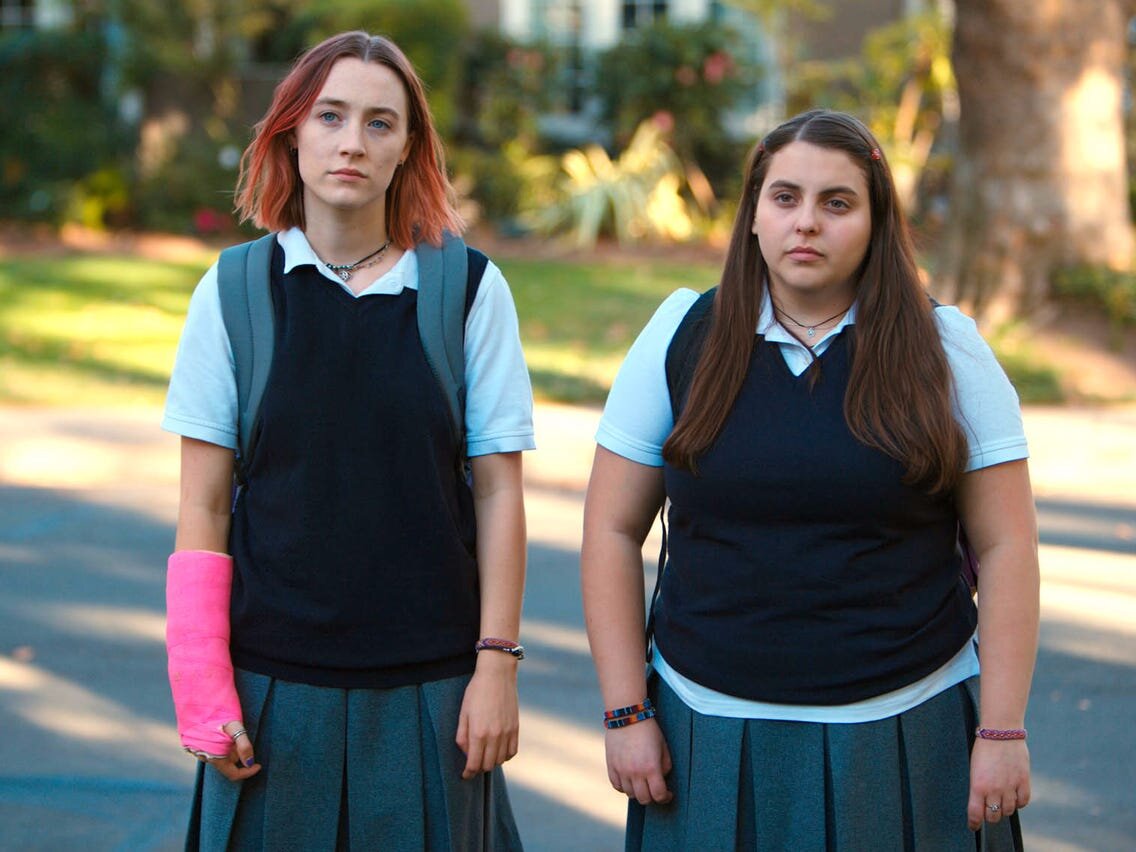NYFF55: Lady Bird Q&A with Greta Gerwig
Coming-of-age stories are classics, but what about letting-go stories?
On October 6 at a New York Film Festival panel, Greta Gerwig discussed the process of writing and directing her first film Lady Bird. In the film, a high school senior named Christine, nicknames herself “Lady Bird.” Lady Bird attempts to define herself through new activities like acting, romance, and applying to colleges far away from her family. Meanwhile, her poverty-stricken family, including her mother, Marion, contemplate adapting to Lady Bird’s new aspirations.
Lady Bird was written and directed by first-time director Greta Gerwig. Similar to Elizabeth Banks and George Clooney, Gerwig began her film career as an actress. Prior to filming Lady Bird, she acted in acclaimed films such as Jackie and 20th Century Women.
Gerwig’s primary motivation for writing about Lady Bird and her family was that stories about parents losing their children are often ignored. “Every child’s coming of age story is someone’s letting go,” she described, “and I was interested in both sides of the story.” True to her word, Lady Bird, devotes a lot of time to Marion and Larry McPherson, Lady Bird’s parents, adjusting to their daughter’s grand ambitions about attending college on the East Coast. Gerwig’s script forces both viewers and Lady Bird to consider the structure of Lady Bird and Marion’s flawed relationship, and to see how both people have damaged it.
Gerwig created such an emotionally-true film after whittling away at her first script. Her first draft was a 350-page screenplay with numerous dance scenes. Not everything was cohesive, but she noted that she found the story’s core through her rewrites. Saoirse Ronan, the actress who plays Lady Bird, added her own energy when she and Gerwig met to read the script at the Toronto Film Festival. “I knew she had the part within two pages of reading,” Gerwig said, since Ronan’s reading was so unique.
As an actress, Gerwig holds a lot of insight on how directors should coach actors. She learned that it’s best to have cameramen wear nametags while on the set of 20th Century Women; this allows actors to recognize and adjust to different camera operators. That practice shows an attention to individuality and respect for members of the crew, the same form of respect that Gerwig idealizes in her film. “We live in a culture of envy,” that invites us to devalue or ignore what we have.
Recounting how her family has adjusted to Gerwig’s directorial debut, the actress-writer-director described how her mother texted her one day, saying, “‘I just wanna tell you, I love you. I know you’re very busy.’” And “I told her no no, I’m not too busy.” Gerwig’s love for her own mother, and her hope that her mother feels loved by her, reminds me of the final scenes in Lady Bird, as the mother Marion comes to appreciate her daughter for who she is, and Lady Bird learns to embrace her family. It’s clear to me that once the credits rolled, Marion, Lady Bird, and Greta all possessed the same spirit toward family.
